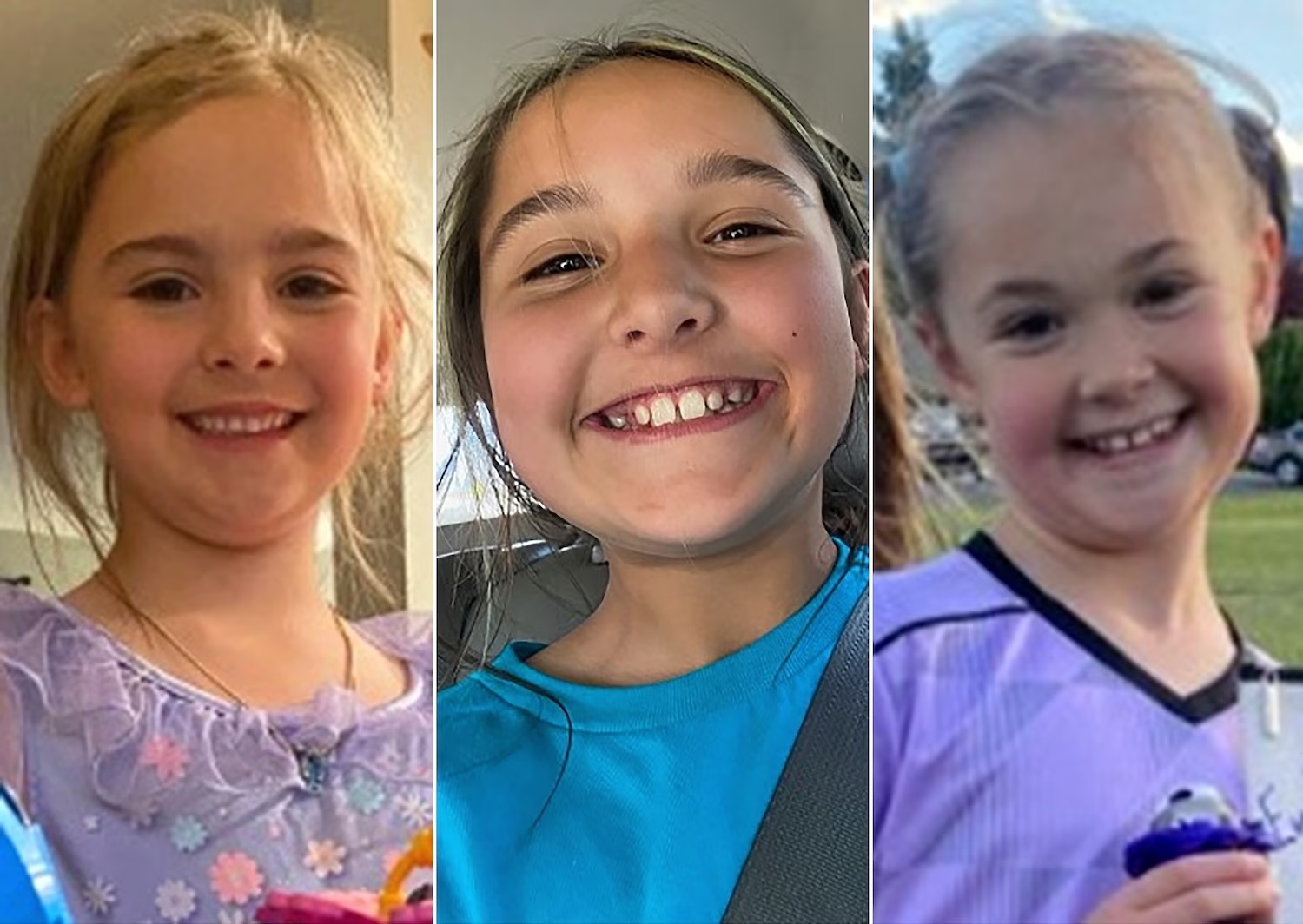You’re reading a heartbreaking story unfold in the state of Washington, where tragedy has struck a family and devastated an entire community. Three young sisters, just 9, 8, and 5 years old, were found dead in a remote area days after being reported missing. Their father, Travis Decker, has vanished and is now considered the primary suspect. What began as an ordinary parental visit has turned into a harrowing search for answers.

Last Friday, the girls’ mother contacted police after her daughters failed to return from a scheduled visit with their father. The arrangement was supposed to last only a few hours, but when Decker didn’t bring them back—and communication stopped entirely—alarm bells went off.
Decker, 32 years old and a former military member, is known to have survivalist skills. That knowledge raised fears that he could stay hidden for a long period. Authorities wasted no time launching an extensive search, enlisting help from federal agencies including the FBI.
The search effort quickly focused on a wooded area near Leavenworth, located roughly 100 kilometers east of Seattle. There, Decker’s pickup truck was found abandoned. Not far from the vehicle, search teams discovered the bodies of the three missing girls.
According to police statements, they were no longer alive by the time they were located. What had started as a mission of hope ended in unimaginable grief. Forensic teams began immediate investigations at the scene to uncover exactly what happened.
The girls’ deaths have sent shockwaves through the local area. Schools, neighbors, and organizations are expressing sorrow and heartbreak. Social media has filled with memorial posts, candlelight photos, and shared memories from those who knew the family.

Schools in the district have organized support services for students and parents affected by the news. Special attention is being given to classmates of the three girls, where the emotional impact is especially visible in classrooms and on playgrounds.
Since the tragic discovery, the search for Travis Decker has intensified. Both local and federal law enforcement are using drones, thermal imaging, and aircraft to scan the rugged terrain. It is believed he may still be hiding somewhere in the remote wilderness.
Residents are being asked to stay alert but are also urged not to search the area themselves. “We understand the public wants to help, but safety and control are essential,” a police spokesperson stated. “Every tip matters, but it needs to be handled by professionals.”
American media outlets are calling the case a devastating breach of familial safety. The story strikes a deep emotional chord, particularly because of the young ages of the victims and the vulnerability involved.

Families, educators, and community leaders are now questioning how these situations can be prevented. Conversations are intensifying about early warning signs and what resources should be in place when families experience stress or conflict.
This tragedy also brings back painful memories of a similar incident that occurred earlier this year in Beerta, a town in the Netherlands. In that case, two children—Emma, 8, and Jeffrey, 10—went missing after their father picked them up for a scheduled visit.
An intensive search ended with their vehicle being found submerged near Winschoten. As in Washington, grief and unanswered questions followed. Both situations reveal the urgency of addressing warning signs in families facing emotional or structural challenges.
The events in Washington are now fueling national discussions about protection, oversight, and inter-agency communication. How can warning signals within families be detected sooner? What role should schools, social services, and legal institutions play in preventing such tragedies?
Experts are calling for better coordination between caregivers, educators, and welfare professionals. Many cases show signs of tension or emotional distress in advance, but too often those signs go unnoticed or are not acted upon. Increased collaboration and more transparent communication could lead to earlier interventions.

As the search for Travis Decker continues, the community is clinging to the hope of resolution and justice. People want answers—not only to close this painful chapter, but also to begin the process of collective healing.
The loss of three innocent lives is more than a local tragedy. It’s a sobering reminder of how vulnerable children can be, even in environments that seem safe. Now, all eyes are on law enforcement and community leaders, hoping this case leads to long-overdue changes in how we protect families under stress.












Comments 1